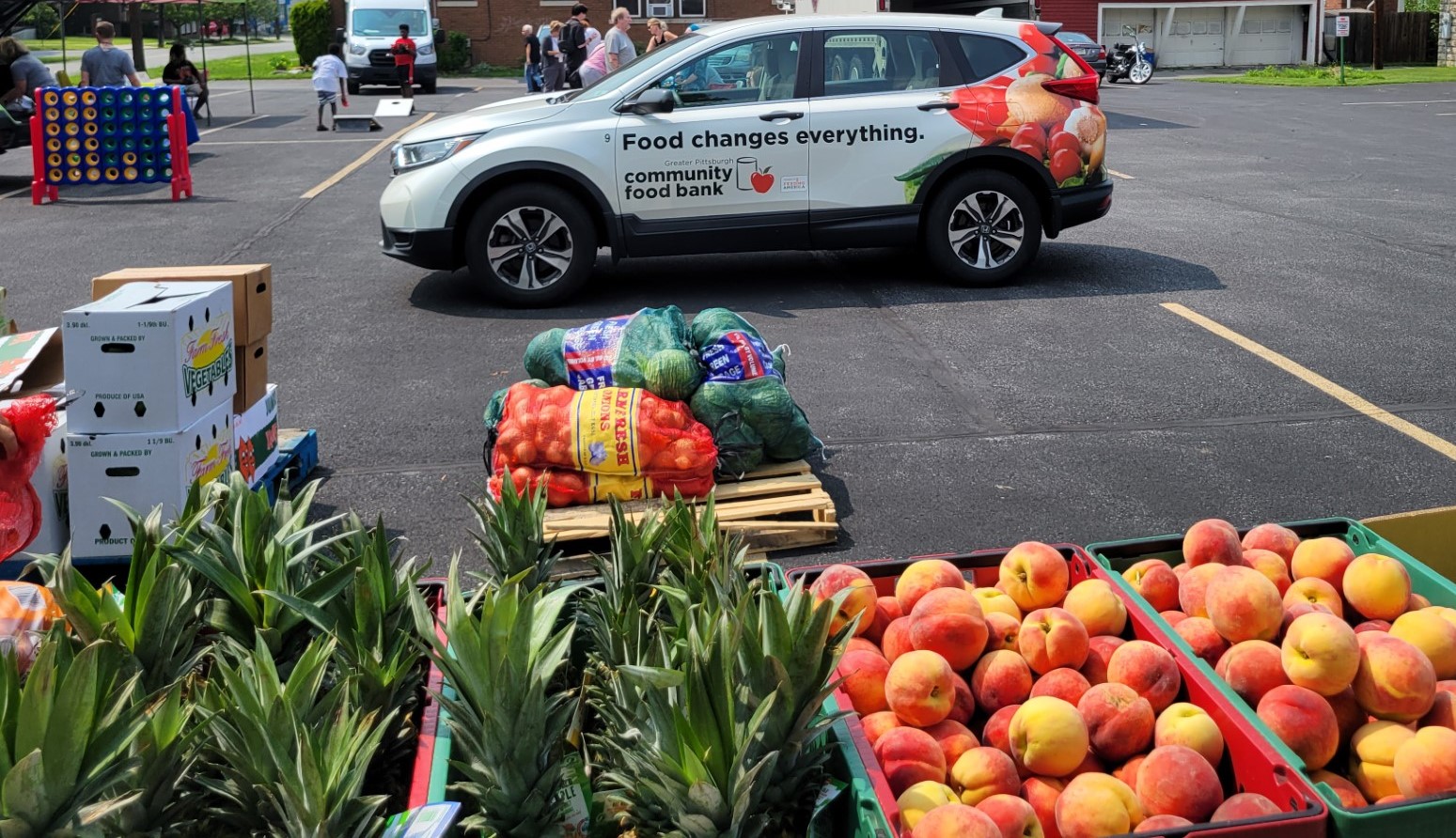Center for Population Health’s Local Food Systems Coordinator Nan McNinney has secured two grants to assist college students who may be facing food insecurity at Mount Aloysius College, Pennsylvania Highlands Community College, Saint Francis University, and University of Pittsburgh at Johnstown.
Community Foundation for the Alleghenies provided $3,800 and Greater Pittsburgh Community Food Bank provided $2,600 to help increase access to healthy food to low-income college students who would otherwise be forced to skip meals.
The grant is being utilized to launch a comprehensive advertising plan to educate college students about the help available if they are facing food insecurity. Funds will also be used in collaboration with each campus to help purchase resources they may need to make their program successful, like refrigerators, microwaves, shelving, and cooking and food preparation supplies.
“Food insecurity is simply the inability to reliably access nutritious food,” said McNinney. “Many people think that if you can afford to go to college you can afford food.”
However, according to McNinney, many area students are considered “nontraditional,” which means they are adult learners, part-time students, and/or parents who can’t afford expensive meal plans on top of tuition and purchasing books and other learning materials. For students, lack of nutritious food or stressing about where the next meal is coming from are obstacles that can lead to lower GPAs and a higher risk of dropping out of school.
“By offering something to sustain them throughout the day, the stress and the pressure can be reduced,” she said. “In addition, we are encouraging students who qualify to enroll in SNAP benefits. These benefits will also help offset some of the financial stress.”
Nationally, approximately 1 in 4 undergraduate students and more than 1 in 10 graduate students are experiencing food insecurity.
“Some Pitt-Johnstown students struggle with food insecurity just as thousands of college students across the country struggle with this basic need,” said Christian Stumpf, University of Pittsburgh at Johnstown Vice President of Student Affairs. “Our campus food pantry, PJ’s Pantry, has become a go-to resource for many students for assistance with food and personal care items in times of need. PJ’s Pantry, located in the Student Union, provides easy access with no proof of need required. It has really made a difference with many of our students.”
According to Andre McCarville, Director of Mission, Ministry, and Service at Mount Aloysius College, the campus is based on the values of mercy, hospitality, justice, and service, which are the very ideas tackling food insecurity is based on.
“The Student Food Pantry Initiative is something that highlights the very values we seek to embody,” said McCarville. “We want them (students) to know that we are here to offer out students unmatched support, intellectually, emotionally, physically, and spiritually during their time at our campus.”
McCarville added that the college’s students, both residential and commuters, are from various financial backgrounds and family situations. There are also many adult students who are supporting families and often working full-time while trying to complete their degree.
“We don’t want there to ever be a time when our students are facing food insecurity while trying to complete their degree,” he said. “This was the motivation for starting Catherine’s Cupboard, our campus food pantry, over a decade ago.”
At Pennsylvania Highlands Community College, Dr. Lawrence Goetz, KEYS Program Coordinator, stated that their students aren’t immune to the reality of food insecurity, which can lead to lower GPA, lower class attendance, and decreased physical and mental health outcomes.
“Pennsylvania Highlands Community College offers an inclusive, supportive, and affordable environment that empowers students to succeed.” said Goetz. “A food pantry initiative like this supports our mission and allows us to address the food insecurity needs of our students.”
As part of the plan students will be asked to complete surveys so the group can get a better idea of the struggles they face by not having something to eat throughout the day.
If you are a college student or know a college student who struggles with food insecurity and might qualify for SNAP benefits, visit Food Access – Center for Population Health (centerforpophealth.org) and click on “College Student SNAP Eligibility.”

